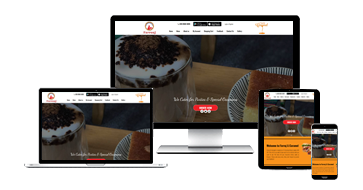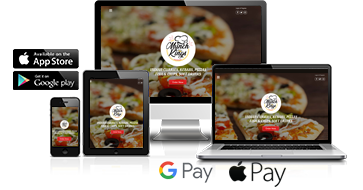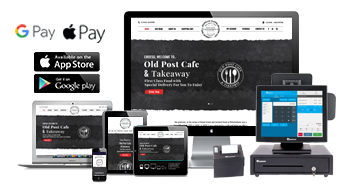Table of Contents

Boost popularity with our referral marketing ideas for restaurant that turn customers into advocates.
Referral marketing has become a vital strategy for restaurants to attract new customers, build awareness and drive growth. At its core, successful referral marketing ideas relies on existing, satisfied customers to organically promote and recommend your restaurant to their friends, family, and networks.
In contrast to word-of-mouth referral programs which depends on people inadvertently spreading information, referral marketing program is a planned tactic that offers prizes and incentives to clients in exchange for successful recommendations.
With increasing competition in the hospitality industry, generating buzz through word-of-mouth marketing strategy can provide restaurants with a unique competitive edge.
This article will provide restaurant owners, managers, and marketers with a comprehensive guide to integrating referral marketing ideas into their overall strategy.

Understanding Referral Marketing
Referral marketing, also known as word-of-mouth marketing, is all about leveraging your existing customers to promote your business to new customers within their networks. It relies on customers being so satisfied with their experience that they voluntarily tell others about your restaurant.
The psychology behind referral marketing ties into basic human behavior. People are far more likely to trust recommendations from those they know and trust, as opposed to traditional advertisements.
In fact, 92% of build trust from people they know. Successfully executing a referral program taps into this tendency by encouraging customers to share their positive experiences.
For restaurants, referral marketing provides numerous benefits:
- Increased reach by accessing new networks and customers
- Highly qualified leads since they come recommended
- Higher conversion rates given the trusting relationship
- Enhanced brand awareness by rewarding existing customers
- Free advertising through organic, unpaid buzz
- Improved SEO from more restaurant online reviews, mentions, etc.
Building a Strong Foundation
Before diving into specific referral marketing tactics, restaurants must focus on laying the groundwork to ensure success. This starts with knowing your customers and providing an exceptional dining experience.
Identifying Your Target Audience
The first step is gaining deep knowledge of your target demographics and existing customer base. Analyze their key attributes like location, age, interests, values, and spending habits. This will inform the type of referral program and offer incentives that will most motivate them to participate.
Creating a Memorable Dining Experience
The top prerequisite of referral marketing is delivering a remarkable dining experience that sparks enthusiasm in your customers. From the quality of food and drinks to the ambiance and customer service, ensure every element is polished to inspire customers to become brand advocates.
Establishing Your Brand Identity
Having a clear brand identity and values that resonate with your audience is key. This gives customers something meaningful and differentiated to rave about. Consistent branding also enables seamless marketing across various platforms.
Identifying Your Unique Selling Points
Determine what makes your restaurant truly unique. What signature dishes, exceptional hospitality, entertainment, or amenities do you provide that competitors cannot? These attributes become key highlights of your referral messaging.
Implementing Referral Marketing ideas
Once your foundation is primed for referrals, it’s time to activate effective strategies and marketing programs.
Leveraging social media marketing and Online Platforms
In today’s digital age, online platforms offer the most powerful referral channels. Monitor online reviews closely and respond promptly to acknowledge happy customers and address any criticisms.
Social media drives significant referral traffic. Regularly update Instagram, Facebook, TikTok, etc. with enticing food photos, events, and specials. Engage followers and encourage user-generated content.
Email marketing nurtures referral relationships. Send special offers only to customers who provide referrals. Maintain an email subscription list to keep past customers engaged.
Creating a Restaurant Referral Program
A structured restaurant referral program offers incentives that entice customers to spread the word. Typical rewards include discounts, free menu items, merchandise, gift cards, and loyalty points. The easier you make participating, the better the response. Automating tracking through online forms or unique referral codes provides convenience.
Encouraging Reviews and Testimonials
Online reviews and testimonials act as referrals by influencing potential new customers. Proactively requesting reviews across various sites like Yelp, Google, and Facebook broadens exposure. Testimonials on your website with photos and permission build credibility.
Influencer and Blogger Partnerships
Restaurant Influencers who align with your brand values and appreciate your mission can become brand ambassadors. Arrange complimentary meals to gain coverage of menu items and events or sponsored Posts. Similar collaborations can be arranged with prominent local food bloggers and critics.
Measuring and Tracking Referral Marketing ideas
To improve over time, restaurants must closely monitor, measure, and analyze key referral marketing performance indicators (KPIs).
Key Performance Indicators
- Number of customer acquisition
- Referral conversion rate
- Redemption rate of referral rewards
- Number and quality of online reviews
- Social media engagement and reach
- Mentions and tags from influencers
Tracking Methods
- Referral codes or trackable links to identify sources
- CRM software to manage referrals and incentives
- UTM campaign tracking for links and promos
- Google Analytics to monitor website traffic
- Social media analytics for engagement insights
Analysis and Optimization
Regularly reviewing program metrics enables refinements. Assess which platforms, partnerships, and incentives deliver the highest ROI. Identify customer segments providing the most referrals. Keep testing new variations and creatively level up efforts that prove most successful.
Real-World Restaurant Referral Marketing Case Studies
Here are two examples of restaurants that creatively implemented referral strategies to new heights:
Case Study 1: Emmer & Rye
This upscale restaurant in Austin, Texas wanted to maintain buzz after opening. They leveraged their reservation system platform to track referrals. Customers who referred a diner who booked received a $50 dining credit. All new customers were asked how they heard about Emmer & Rye during reservation booking. Within months, over 25% of bookings came directly from referrals.
Case Study 2: The Cheese Bar
To attract more customers, Vancouver’s The Cheese Bar created a “Cheese Club”. Members got a 10% discount for every friend they referred who signed up. referral codes tracked the process. Upon launching, they saw member sign-ups double within a month. Social media mentions also rose as members bragged about membership perks to friends.
Overcoming Referral Marketing Challenges
While the benefits are abundant, referral marketing does present some potential pitfalls to be aware of.
Common Challenges
- Difficulty tracking and measuring some referral channels
- Maintaining quality control of the customer experience at increased volumes
- Additional costs associated with referral rewards and incentives
- Controlling brand messaging and reputation with increased social sharing
- Reduced novelty of referral rewards over time leading to lower participation
Strategic Solutions
- Invest in attribution tracking software and CRM to quantify efforts
- Set proper expectations with customers if capacity strains arise
- Structure intelligent tiered rewards to balance costs
- Monitor online reviews and social media closely
- Frequently refresh program terms and rotate reward offerings
Proper preparation and vigilance in analyzing data enables restaurants to course-correct quickly. With testing and tweaking, referral initiatives can be optimized to maximize return on investment.
Legal and Ethical Considerations
While generating buzz, restaurants must be mindful of legal and ethical guidelines.
For giveaways and sweepstakes, official rules must comply with state and federal regulations. Any emails or text messaging require proper opt-in consent. Never provide valuable rewards in direct exchange for a positive review, as this violates review site policies.
Ethically, transparency with customers is key. Inform them if you plan to publicly feature any reviews or photos in your marketing materials. Avoid manipulation or pressure tactics to force referrals or disingenuous reviews. Keep customers’ contact information private.
Conclusion and Next Steps
Referral marketing is hugely important for restaurants looking to grow their business. According to recent referral marketing statistics, referred customers have 16% higher lifetime value than non-referred customers. Focusing on generating referrals can significantly improve customer lifetime value.
Customer Referrals have a powerful advantage over traditional advertising and restaurant content marketing.
Recommendations from friends and family carry more weight in influencing purchase decisions. Research shows Restaurant customer reviews have the highest effectiveness for driving sales compared to other content types.
Restaurant Loyalty programs and incentives can help, but the fundamentals matter most. Remarkable food, drink, and hospitality inspire the genuine enthusiasm that gets people talking. Satisfied customers and loyal customers make enthusiastic advocates. They go out of their way to recommend restaurants they love.
For restaurants seeking sustainable growth, prioritizing referral marketing is a smart approach. Work on exceeding customer expectations and make it easy for fans to spread the word. This customer-centric focus builds brand loyalty, improves retention, and drives new business through word-of-mouth. Harnessing the power of referrals can lead to big rewards for restaurants without requiring a big marketing budget.
Tools
referralHero – Referral and word-of-mouth marketing platform
Referral Candy – Automated referral program tool
Viral Loops – Referral and influencer marketing tool
Implementing strategic referral marketing establishes restaurants as a credible, recommended choice among endless dining options. A small investment in crafting the referral experience today can pay endless dividends through authentic word-of-mouth marketing tomorrow.
In essence, referral loops help food delivery system continually proliferate through trusted social sharing achieving efficient growth in a cost-effective manner leading to enduring competitive edge.









